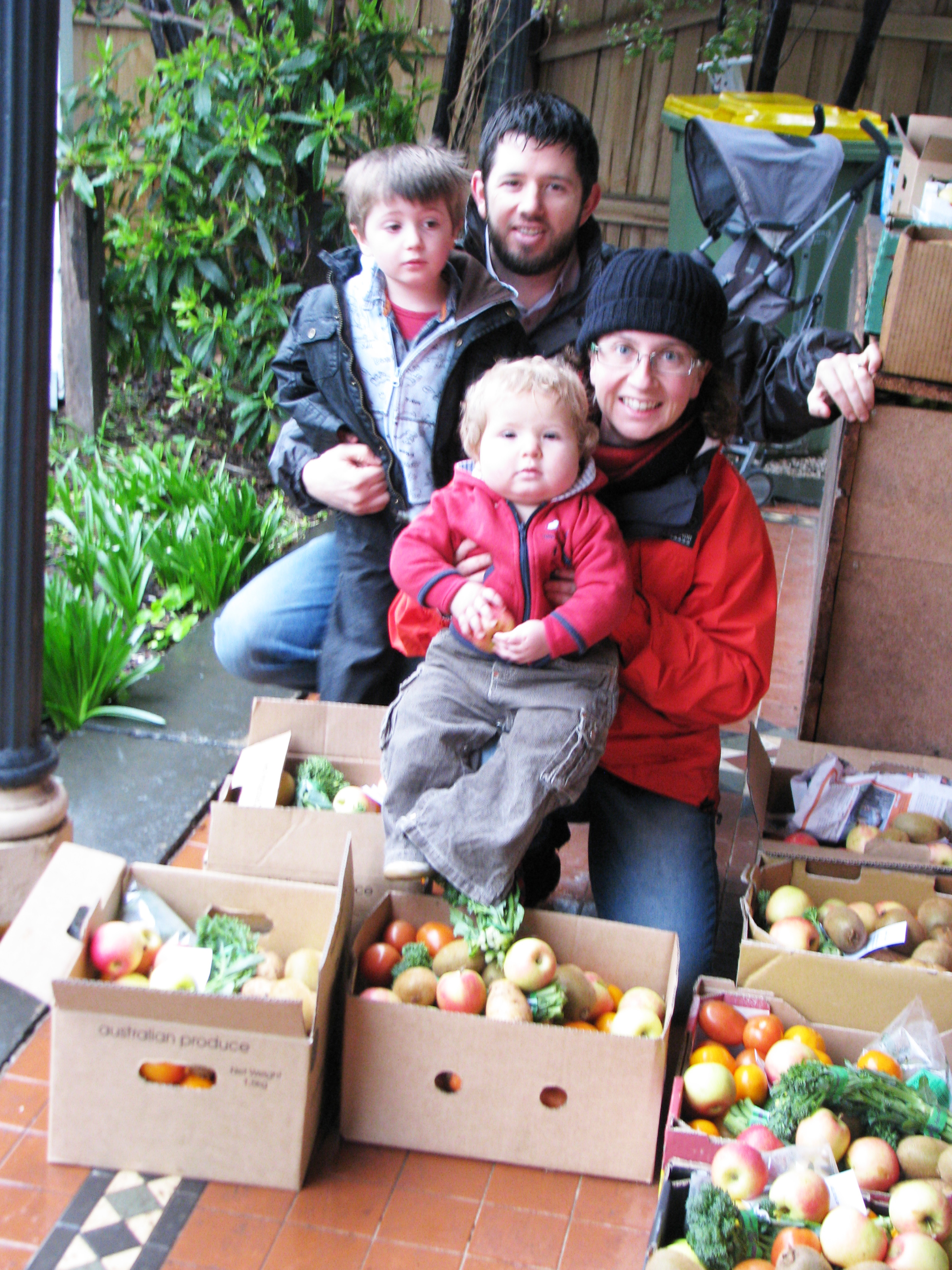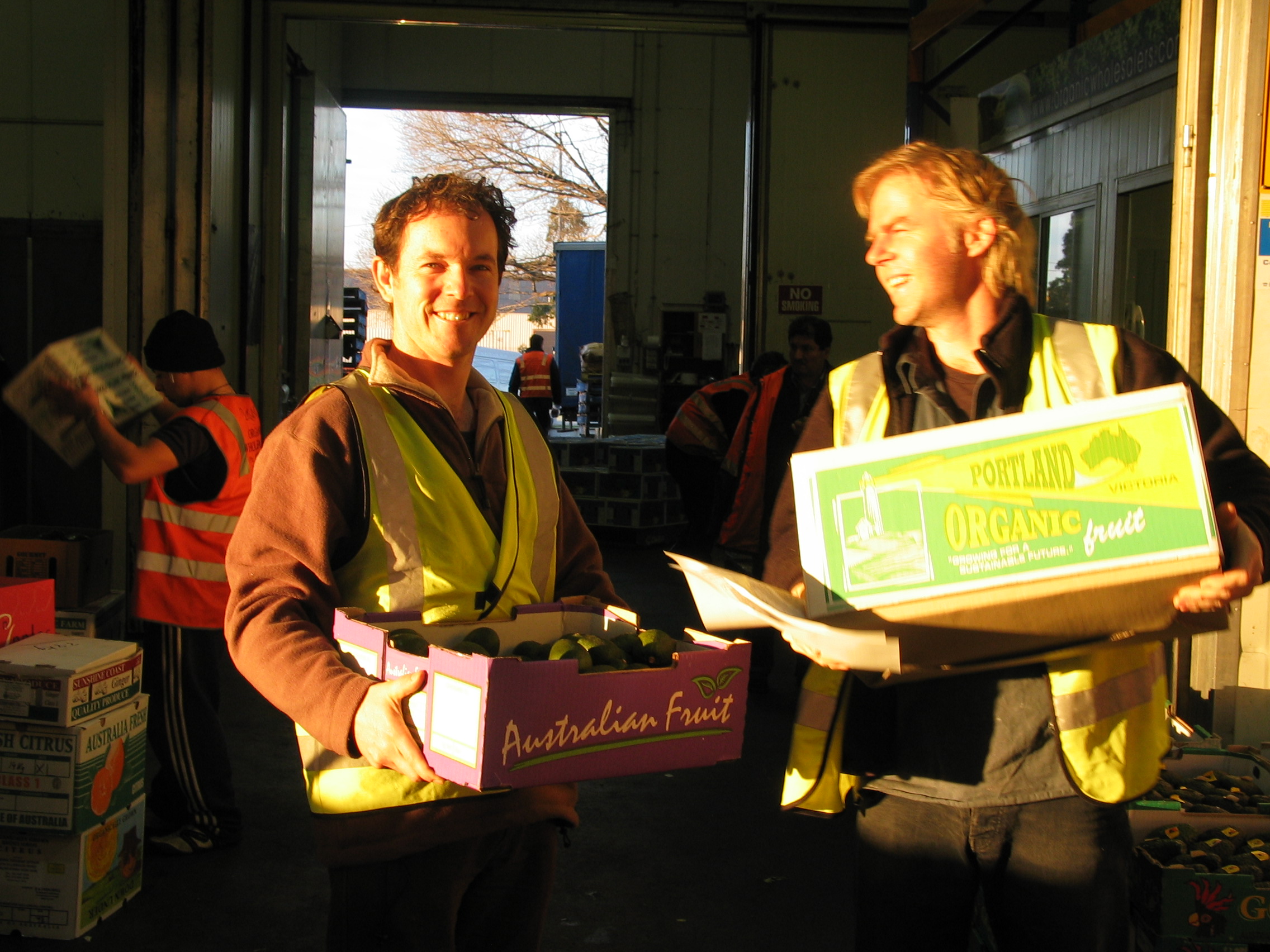| |
 |
Every day we make choices about our food: what we do or don’t eat; the type of products we buy; and where we choose to shop to name just a few. Examining these choices can help us understand our values and the ways we choose to embody them. Too often we ignore the ethics behind our food and how we might be able to express our faith in the ordinary choices that we make every day. The following example is one small step in examining this process.
I live in Footscray, in Melbourne’s western suburbs, with my wife Dom and sons Hugo and Jasper. Close by and within walking distance are a variety of fresh food options including the Footscray Markets, Little Saigon (a Vietnamese food market), multiple supermarkets and small grocers. However, it is in the heart of Footscray, amongst these options that a group of people have been experimenting with how we purchase our food. It is here that we are trying to lessen the environmental impact that collectively we have on the earth by choosing to buy food that uses no chemicals.
In 2001, ten households got together to begin what is now called the Western Organic Co-operative (WOC). Each week, each household put in $20 and we bought our fruit and vegetables collectively. By combining our money the group found that it could increase its purchasing power. Due to environmental and health concerns the group decided to only buy organic fruit and vegetables.
Initially the food was bought from a small social enterprise called Grasslands. In addition to going to the wholesale market, they had a direct relationship with the growers and had small descriptions of them up on their shop wall. After a couple of years, when this was no longer tenable, we became an incorporated association so that we could go directly to the wholesale markets ourselves. This further increased our value for money, and we are now getting our organic fruit and vegies for about 30-50% of the retail price.
By 2004 the co-operative had doubled its size. It became obvious that for the co-operative to work well we needed to have a number of systems in place. This included rosters for buying, sorting and delivering the food, and a central payment system. The simple rule is that everyone has to do something. One of my earliest recollections of the food co-op is helping with Friday morning sorting of vegies four or five weeks in a row. This was because as the co-op was small it required more effort by members to keep it running. As we have grown over the years the structure of the WOC has evolved and roles have continued to be divided amongst members.
Our systems now run remarkably smoothly; in fact, so well that there grew to be a large demand to join our little co-op. However, we had learnt through experience that there is an optimum size for these sort of voluntary cooperatives, and have capped our membership at 25 households. Rather than just say no to a bunch of people, we instead decided to use our model to help others set up similar small collectives, and there are now five other organic food co-ops in Melbourne’s inner-west.
Four times a year the WOC also holds dry-goods days. This is where we pool our money to buy bulk organic dry goods such as rice, flour or oil, and then get together to divide it all out amongst ourselves. Buying and sorting bulk food on these dry goods days has helped me to realise the excessive amount of packaging that supermarket food comes in. I now try to make choices in minimising the food I buy that has packaging and sometimes this means choosing not to buy anything at all.
What I like most about the WOC are the intangibles that keep it going. These include the incidental meeting of people when dropping off the veggie box at their house, the dry-goods gatherings and knowing that everyone else in the WOC is trying to work out how to use a strange looking vegetable they received that week. All of these things contribute to the building of local community and strengthening the social fabric.
Since I have been involved with the WOC I have learnt to appreciate even more where my food comes from, that food runs in seasons, and how to work better within the natural rhythms of nature. For example, in Victoria it often gets quite cold in the winter. This limits the different types of vegetables you can grow. As a result, the veggie box can be dominated with root vegetables and only one or two variety of fruits (compared to summer when the diversity of fruit and vegetables is amazing). This means that we have to be creative in the way we cook, coming up with new ways of cooking potatoes, carrots, onions, or pumpkins. It is during these times that I feel closer to the rhythms of nature and this assists me to appreciate the complexity of the seasons and God’s creation.
While I have always been interested in gardening, this has now blossomed and my wife and I now preserve fruit from our own fruit trees, have a vegetable garden, and are raising Hugo and Jasper to care for the environment around them.
In particular, being part of the food coop has helped me:
- Live my faith out in practical ways.
- Reflect on how I relate to God’s creation and how my food choices impact the earth.
- Share economics and life with others.
As Dom and I continue to work out how to reduce our impact on the earth, sometimes we fail miserably. But I am inspired by belonging to a group of people who are continuing to think about how they consume and what they consume. In short, while the food coop is one small step. It is one step that a community of people are taking together. For me, that is where its strength and beauty lies.
For information on how to set up your own food co-operative go to www.organicfoodcoop.org.au

